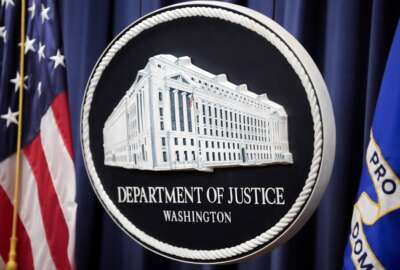NSA leak case gives vendors reason to reevaluate personnel
Intelligence community contractors, similar to Booz Allen, likely are reevaluating employees who have access to classified information in order to identify any ...
wfedstaff | April 17, 2015 5:07 pm
By Melissa Dawkins
Special to Federal News Radio
Contracting companies in the intelligence community are implementing procedures to ensure another leak of classified information doesn’t happen, experts say.
“In the handful of companies that I represent in that sector, I think we’re all thinking about what it is that we can do so that we don’t end up with someone who’s on the borderline of defection, sitting in Hong Kong, or wherever he’s defected to today, with a large volume of classified information,” Steve Ryan, leader of the government strategies practice group for McDermott, Will and Emery, told the Federal Drive with Tom Temin and Emily Kopp
Ryan, of course, is referring to Edward Snowden, the former Booz Allen Hamilton employee who leaked details of a classified surveillance program.
Booz Allen Hamilton will not likely be subject to a suspension and debarment proceeding, Ryan said. But in terms of the company’s reputation in the public eye, the damage already has been done, he said.
“The American public didn’t know who Booz Allen was,” Ryan said. “Now they know one thing about the company, and that one thing isn’t particularly attractive.”
Contractors tightening up procedures?
In order to avoid a similar fate, other companies may be implementing personnel reviews, though government agencies, not companies, are responsible for issuing and maintaining security clearances.
“At the end of the day, contractors have to tighten up their procedures. But this is a system problem. It’s not a Booz Allen problem. I think that if Booz Allen is embarrassed, there are a lot of other people it could have been,” Ryan said.
According to Bloomberg Government, 58 public companies disclose doing secret work for the government, while the actual number of companies cleared to handle classified data is near 8,000, analyst Rob Levinson of Bloomberg Government told the Federal Drive in an interview.
“Some of them are probably asking HR, ‘Hey, take another hard look at all of our people, particularly those who are in very sensitive positions, and see if we’re missing anything; if there’s anything in their background or something that we didn’t get at first blush that might indicate that they might be a problem,'” Levinson said.
Clearances subject to reviews
In addition to potential personnel reviews administered by the contracting company, government contractors with security clearances are subject to periodic clearance reviews.
The CIA revoked 0.4 percent of its total security clearance reviews, while the National Security Agency revoked 0.3 percent of its total security clearance reviews in fiscal year 2012, according to the Office of the Director of National Intelligence (ODNI) 2012 Report on Security Clearance Determinations, obtained by the Federation of American Scientists.
Overall, 4.9 million government contractors and employees held security clearances as of October 2012, according to the ODNI report. About 1 million of those holding security clearances were government contractors.
“You’re fat, dumb and happy, walking along with your billion-dollar contracts in the intel community, and this happens to you,” Ryan said. “And I’m sure that the foreign counterintelligence community will have to consider how is it that we didn’t detect that this guy was able to do this, because there might be other people directly working for a foreign nation, who are suborned by a foreign nation.”
Melissa Dawkins is an intern for Federal News Radio
RELATED STORIES:
Booz Allen says it’s fired Snowden after NSA leak
Security clearance process in need of makeover, expert says
Copyright © 2024 Federal News Network. All rights reserved. This website is not intended for users located within the European Economic Area.





